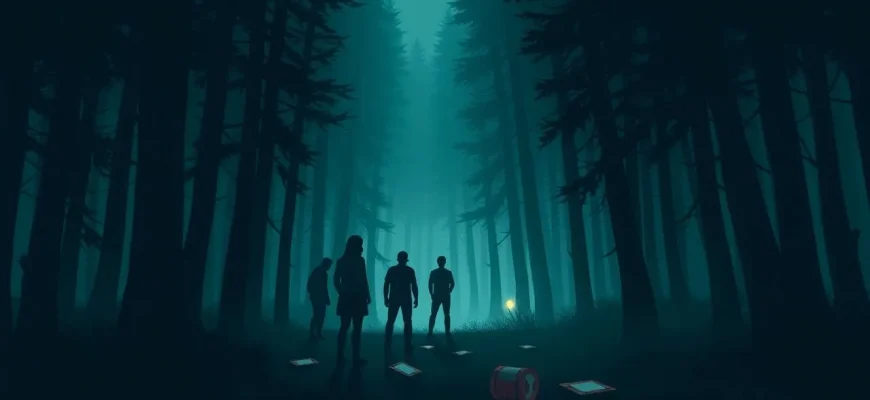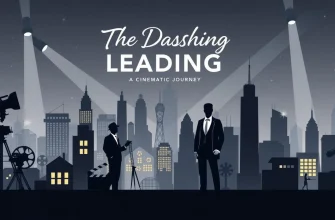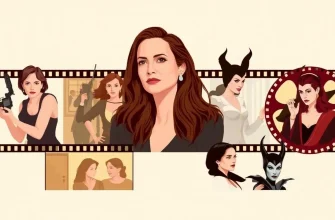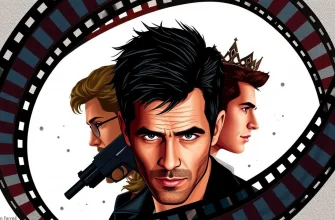Cannibalism in cinema often serves as a metaphor for societal critique, exploring themes of survival, morality, and the darkest corners of human nature. This collection of films delves into the macabre world of cannibalism, offering viewers a mix of horror, psychological thriller, and dark comedy. Each film has been selected for its unique approach to the subject, providing not only a thrilling experience but also a deeper commentary on human behavior and ethics.

The Silence of the Lambs (1991)
Description: This film features one of the most iconic cannibals in cinema, Dr. Hannibal Lecter, whose sophisticated demeanor masks his dark appetites. It's a psychological thriller that delves into the mind of a cannibal while also exploring themes of justice and empathy.
Fact: The film won five Academy Awards, including Best Picture, making it one of only three films to win all the "big five" Oscars.
 30 Days Free
30 Days Free 
Raw (2016)
Description: A French-Belgian horror film about a vegetarian veterinary student who develops a taste for human flesh. It's a coming-of-age story with a twist, exploring themes of identity and transformation.
Fact: The film was banned in Russia due to its graphic content, but it received widespread critical acclaim for its originality and execution.
 30 Days Free
30 Days Free 
Cannibal Holocaust (1980)
Description: Known for its extreme violence and the "found footage" style, this film is about a rescue mission to find a missing documentary crew in the Amazon, only to uncover their gruesome fate. It's a controversial piece that critiques media sensationalism.
Fact: The film was initially banned in several countries for its graphic content, and the director was even arrested for murder due to the realistic nature of the footage.
 30 Days Free
30 Days Free 
The Green Inferno (2013)
Description: A modern homage to 'Cannibal Holocaust', this film follows a group of activists who are captured by a cannibal tribe in the Amazon. It's a gory, satirical take on activism and survival.
Fact: Eli Roth, the director, is known for his love of horror and gore, and this film was his attempt to revive the cannibal genre.
 30 Days Free
30 Days Free 
Delicatessen (1991)
Description: A dark comedy set in a post-apocalyptic world where food is scarce, and the butcher's shop serves human flesh. It's a surreal exploration of cannibalism with a humorous twist.
Fact: The film was co-directed by Jean-Pierre Jeunet and Marc Caro, who later went on to direct "Amélie."
 30 Days Free
30 Days Free 
We Are What We Are (2013)
Description: This American remake of a Mexican film explores a family's tradition of cannibalism, focusing on the psychological and emotional aspects of their ritualistic practices.
Fact: The film was praised for its atmospheric tension and the performances of its cast, particularly Bill Sage.
 30 Days Free
30 Days Free 
Ravenous (1999)
Description: Set during the Mexican-American War, this film blends historical fiction with horror, where a soldier encounters a man with an insatiable hunger for human flesh, leading to a battle of survival and morality.
Fact: The film was initially released with a different ending in some countries due to negative test audience reactions.
 30 Days Free
30 Days Free 
The Cook, the Thief, His Wife & Her Lover (1989)
Description: While not strictly about cannibalism, the film features a scene where the antagonist eats his rival, making it a notable entry. It's a visually stunning critique on power, consumption, and revenge.
Fact: The film's elaborate set design and costume changes reflect the characters' personalities and the narrative's progression.
 30 Days Free
30 Days Free 
Eating Raoul (1982)
Description: A black comedy about a couple who turn to murder and cannibalism to fund their dream of opening a restaurant. It's a satirical look at American consumerism and the lengths people go to achieve their desires.
Fact: The film was produced by the same company that later produced "The Silence of the Lambs."
 30 Days Free
30 Days Free 
The Road (2009)
Description: While not explicitly about cannibalism, the film features scenes where survivors resort to eating human flesh due to starvation in a post-apocalyptic world. It's a poignant exploration of survival and the human spirit.
Fact: The film was adapted from Cormac McCarthy's Pulitzer Prize-winning novel, and it received widespread acclaim for its bleak yet beautiful portrayal of a father-son relationship.
 30 Days Free
30 Days Free 








